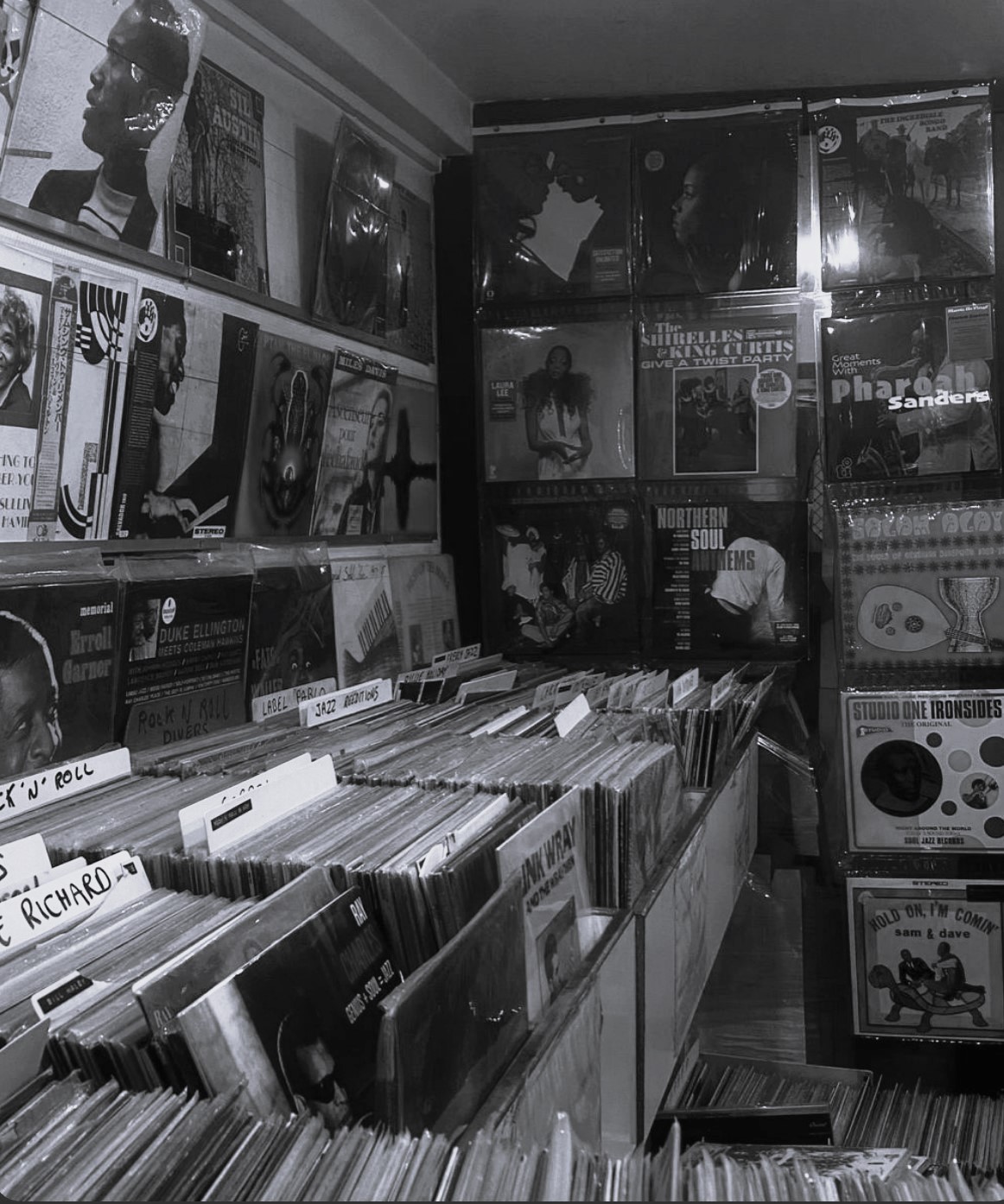Why you need to start collecting vinyl, think of it as your own streaming service
Carina Mercado, Opinions Editor
Dear Music Lovers,
Yes, it is worth it to collect vinyl. Yes, it sounds better. No, I’m not just trying to be different because it’s vintage. There is genuine magic pressed into wax.
The feeling of holding a newly purchased vinyl record far outshines that of using streaming services; no playlist could ever match the appeal of a fully shelved record collection. While the convenience and affordability of streaming services are tempting, there are many reasons to start collecting vinyl. Trust me, I’ve worked retail at a record store.
Streaming Services vs. Physical Media
With the rise of Spotify, SoundCloud, YouTube, Apple Music, and older platforms like Tidal and Pandora, the global music-loving community has largely shifted to digital formats. I get the appeal: it’s practical to have all your music on one device, and you can invest in quality headphones to match. Technology aims to simplify life, even if it sometimes compromises the quality of art. Smartphones have, for better or worse, taken the place of the turntable, radio, TV, art easel, and bookshelf.
However, streaming services are essentially about renting access to music. Movies and TV shows come with at-home screening licenses that permit personal viewing — hence the piracy warnings that prevent commercial distribution of replicas. In today’s world, art often transcends the physical medium, both financially and materially, for better or worse.
But picture this: when the skies rain down destruction, the dead crawl out from their eternal rest, and your safe haven has no Wi-Fi or streaming, you’ll realize how essential music was to your routine. That’s the time to turn on the generator, drop the needle, pick up a book, and outlast the chaos with some tunes.
I remember being a middle-school girl, scrolling through the millennial valleys of Tumblr, Instagram, and Pinterest in the early to mid-2010s. MARINA, The Neighbourhood, Bleachers, Lana Del Rey, and Arctic Monkeys were cultural icons. This era romanticized Polaroids, grunge music, and physical media. Counterculture pushed back against social media with a love for retro aesthetics. Flannels and chokers accompanied photos of vinyl records on bedspreads, while band T-shirts symbolized record collections. I saw my future: shelves of vinyl records with a high-end turntable and sound system.
Now, in the mid-2020s, Gen Z has also embraced vinyl; I’d say half the people I know own at least one record, and many have a turntable in their rooms. Vinyl has become as essential as the flat-screen and PS5. Charli XCX, Sabrina Carpenter, and Chappell Roan sparked a surge of vinyl purchases at my local record shop, igniting a passion among young people to physically own their favourite albums. After all, once you buy a vinyl record, it’s yours forever.
The Benefits of Collecting Vinyl
- Owning Your Own Music: Streaming services can limit access to music, while owning vinyl opens up greater possibilities for enjoying sound. You can take records to friends’ houses, use them for sampling, DJing, and keep tabs on your favourite artists’ discographies.
- A Worthwhile Investment: Stories about rare vinyl albums selling for high prices are common on sites like Discogs. For example, A copy of Prince’s black album sold for $25,000 USD on Discogs. If you care for your vinyl records, they can be cherished possessions for future generations. Parents often pass down their collections, and collectors can make a profit on albums bought in their youth.
- Supporting Artists: Although vinyl is more expensive than streaming services, it’s worth it to directly support the artists you love. Vinyl bought at record stores or concerts goes directly to the artist’s record label or tour revenue. Supporting the art that supports you feels rewarding.
- Hobbies: Doomscrolling SUCKS! Replace it with a hobby! Record collecting is a fun way to curate, personalize, and be productive. It builds a community of enthusiasts across genres who value vinyl. Instead of skimming 30-second clips on your phone, immerse yourself in the sound of a full album.
- Record Store Hopping: A great pastime, excuse to walk around, or date idea. Downtown Toronto is home to numerous record stores, easily accessible by public transit or on foot. Be warned—this hobby often leads to buying more vinyl than intended!
- Personal Favourites: Sonic Boom, Kops Records, Futhark Records
- Access to Niche Music Not Available on Streaming: As a metal fan, I find some albums or entire artist discographies that aren’t online. Some bands are too obscure to justify digitization, so their music exists only as physical media. Vinyl, LPs, and CDs are crucial for some niche genres.
Like the groceries we buy, the price of music has risen. Older customers often tell stories of getting a $10 weekly allowance to buy one record in the 1970s-90s. Today, a new vinyl record ranges from $30-60 CAD, but you don’t always have to buy new.
Ways to Find Affordable Records
- Purchase Second-Hand: Check out Facebook Marketplace, Kijiji, Discogs, and other resale sites.
- Visit Used Record Stores: Many stores have a used section where you can find records at a lower cost.
- Opt for CD or Cassette: CDs and cassettes are smaller, cheaper alternatives if you can’t find a vinyl version of an album.
- Shop on Record Store Days: Occurring twice a year, Record Store Days feature exclusive releases and discounts. Find the next RSD date and arrive early!
- Ask Your Family: Parents, aunts, uncles, older cousins, and grandparents relied on physical media for music; see if they have any records left. For me, a filing cabinet of records awaits in my uncle’s storage unit in the Philippines — the wait for vinyl is worth it.
Photo Credit: Emily Tung



